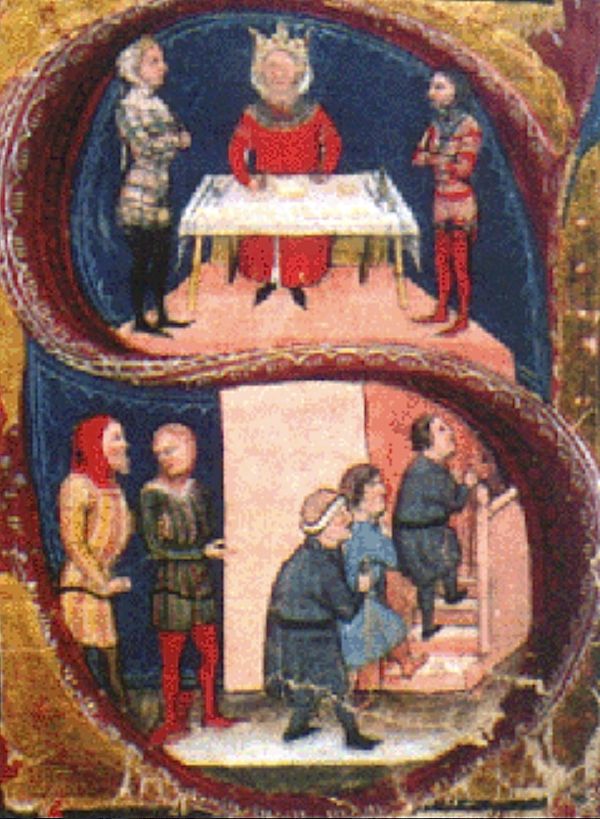Everyone is called, but with which trousseau? Without artifices
(Mt 22:1-14)
The «wedding dress» (vv.11-12) is not here a figure of the our outside image, but of the essential - of what really matters.
The Kingdom of God announced by Jesus does not admit personal and civil disregard [cf. Mt 21]. And the Banquet preached by the Master is not a Garden of Eden for a future in the afterlife, but a direct thread.
His Meal Table is the new condition into which the person who trusts his proposal is introduced.
But there are those who feel satiated, because they feel they already have enough for a life without too many problems.
It was the situation of the authorities, satisfied with the superabundant religious structure, which seemed to offer just social security, and certainty even before God.
All are called (v.14) to the Banquet, yet someone didn’t keep the white robe of Baptism in Christ. He has totally changed his outfit, and presents himself with the rags of ancient life.
Jesus resumes speaking with the leaders and confronts them without half measures, because He doesn’t compare the Kingdom of the Father to a solemn assembly, but to a wedding feast!
In the simple, popular, immediate and playful frankness of a marriage there is a human reality characterizing the divine condition: the spontaneous Joy of genuine relations, face to face.
The proposal for a cheering novelty, however, is rejected. Self-sufficient and experienced venerate another master: interest.
Opportunism cannot be an ingredient of the Sacred: profit turns people back on itself, closes their eyes, makes them unilateral, gloomy.
And despicable calculations lead the same people to destruction (v.7).
The background of the parable is the friction between Jews and converted pagans.
Considering themselves chosen - «elected» (v.14) - the former refused to break the Bread, share, catch up with the latter.
It’s interesting however that the faithful servants, pushing pushing, stood out (backwards): in any circumstance they remained willing to enter "last" at the Banquet.
In short, the space opened by the self-exclusion of the nation called first would not have succeeded in putting an "end" to the efforts of those who have always fought for life and authenticity.
Fruiting trees don’t like to prevaricate. They risk and occupy only the last place; being close to the uncertain, and encouraging them.
Therefore at v.9 Mt invites us to go to the «outlets of the streets» [Greek text] ie in the existential suburbs where life is not obvious, but pulsates always new. Where you can’t be indifferent.
The Greek term indicates the end of urban (reassuring) roads and the beginning of the paths poorly cared for and risky.
In Semitic mentality, they were the boundary of the pure territory and the threshold of precarious, contaminated places.
Not only that: God’s offer of love gathers first the "bad guys" [«wicked»: v.10 Greek text] to emphasize that Heaven is not ‘at points’.
It is available to the needy, to those who recognise themselves as such.
But everyone can be misdressed outside, not inside: that is, vigilant to the brothers, and diligent. We are called to abandon neglect and carelessness.
By Faith that incorporates us without conditions to the Bridegroom, the clean and sumptuous dress is always made available by the Landlord.
But wearing it’s the result of a conscious choice, made its own: wanting «to give birth to a new world, where all of us are brothers and sisters, where there is room for all those whom our societies discard» [Fratelli Tutti (Brethren All), n. 278].
God's people cannot live in a parallel, disconnected, double world - as if the only God they worship is 'marketing and convenience'.
[Thursday 20th wk. in O.T. August 22, 2024]












